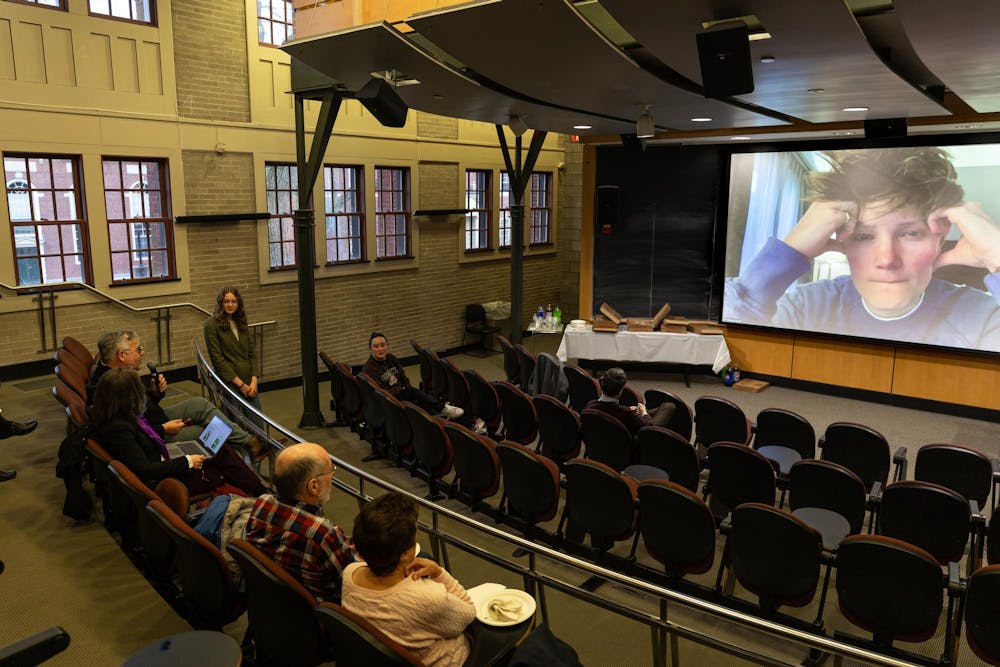What do Jeff Goldblum, Greek mythology and bureaucratic nightmares have in common? They all featured in Charlie Covell’s contemporary reimagining of classical tales in the 2024 Netflix series “Kaos.” In an interview with The Herald, Covell provided insight into their genre-bending creation, where ancient gods navigate a world that’s recognizably ours, yet somehow “kinked.”
Covell was on campus this past week for two events hosted by the Classics Department: a screening of “Kaos,” and a conversation with Covell and one of the show’s stars, Misia Butler, who plays Caeneus.
Covell’s interest in Greek mythology stems from watching the 2010 film “Clash of the Titans” when they were young and reading works by Carol Ann Duffy and Margaret Atwood in their 20s, Covell told The Herald.
But the development of “Kaos” wasn’t always a structured affair.
“There was thought behind everything,” Covell said. “But in truth, I think with lots of ideas, you don’t know where they bubble up from. Sometimes I just have an image of something.”
Humor plays a crucial role in Covell’s storytelling approach, they said. They capitalized on comedy while writing both “Kaos” and the 2017 to 2019 series “The End of the F***ing World.”
“I think my tone is probably consistent in everything I do,” Covell said, adding that their use of “deadpan humor” acts as an “anchor” as they walk the line between too dark and too sentimental.
Covell has received criticism from those who remain loyal to the original myths. But “if you’re doing a reinterpretation of anything, purists are not going to like it,” they said. “You have to make your peace with that before you embark on anything, really.”
At the talk, Butler — who plays a transgender character and is also transgender himself — reflected on the significance of his role. “The most rewarding thing in this whole process has been how many specifically young, transmasculine people come up to me on the street,” he said.
The show’s cast includes many diverse identities. For Covell, incorporating diversity into “Kaos” wasn’t forced, but rather casual and inherent to the source material.
“The myths themselves are inherently very queer, very diverse,” they told The Herald. “By staying true to the source material, you have to be diverse in the storytelling.”
“It was quite important to me that Caeneus wasn’t the only trans character in the show, because I think there’s a lot of pressure on that character to be all things to all people, and that’s obviously impossible,” they added.
The show was cancelled after just one eight-episode season, but Covell was happy about how it was received. “A lot of people who I maybe would have thought would be turned off by some of the more progressive elements of the show actually weren’t,” they said.
After the talk, Covell added that they were “chuffed” and “moved by” the audience members — including those who identify as queer — who said the show “was a good representation” of stories that haven’t traditionally been depicted on television.





